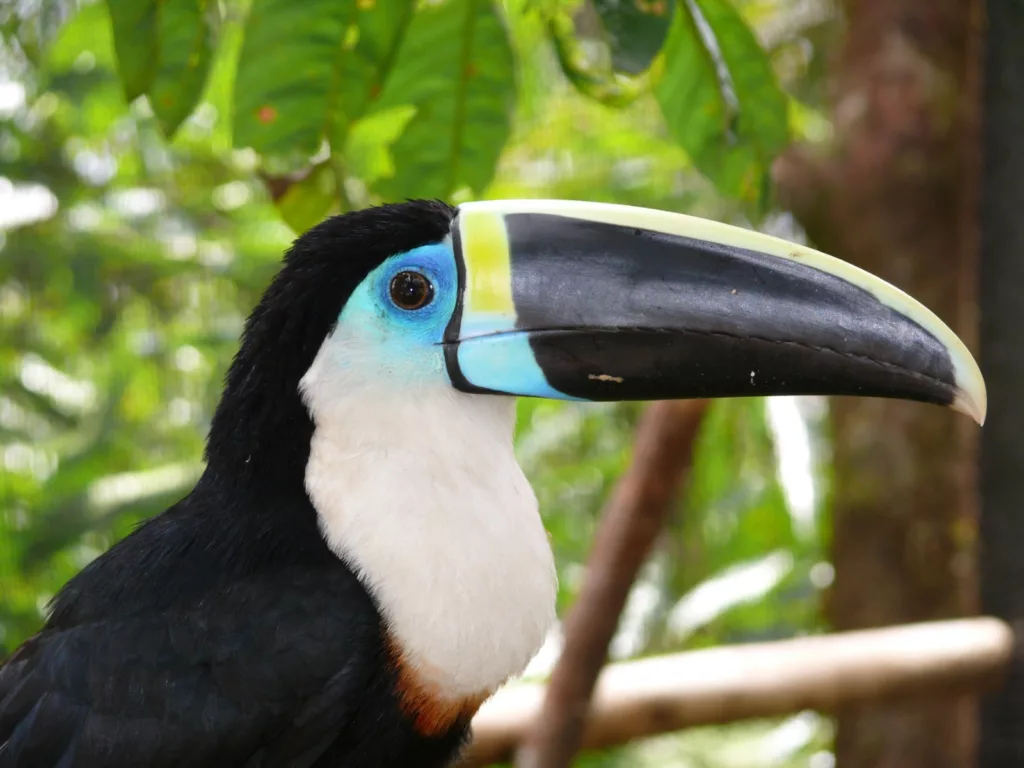White-throated Toucan (Ramphastos tucanus), is one of the most fascinating and exotic species of toucans found in the South American rainforests. In this article, we will explore their distinctive characteristics and their life in the wild.
Physical Characteristics of White-throated Toucan
The White-throated Toucan possesses distinct features that set it apart from other toucan species. Firstly, they have a large body predominantly colored black. However, what stands out most is the white throat, which is their primary distinguishing feature. Additionally, their large and colorful bill is a major attraction, with shades of yellow, green, and orange on the upper part. This substantial bill leaves a striking and unique impression on the bird. Notably, White-throated Toucans can weigh between 500 to 620 grams.

Habitat and Distribution
Typically, this species finds its habitat in lowland rainforests in South America, especially in countries such as Brazil, Venezuela, Colombia, and Peru. They favor the rainforest canopy, where they can forage for food and seek shelter from predators. White-throated Toucans are arboreal creatures, meaning they are more commonly found above the trees than on the ground. Their natural habitat includes forests, grasslands, and shrublands.
Feeding Habits and Diet
Like most toucan species, White-throated Toucans are frugivorous, primarily feeding on fruits. They also consume seeds, small insects, and occasionally supplemental foods like small birds and reptiles, such as small lizards. Their large bills are incredibly useful for peeling tough fruits and reaching difficult-to-access food in tall trees.
Reproduction and Behavior
White-throated Toucans live in small groups known as “flocks.” These flocks often consist of several individuals that cooperate in searching for food and sharing responsibilities in caring for their offspring. White-throated Toucans are monogamous animals, meaning they form lifelong pairs. Females typically lay their eggs in modified tree hollows. They can lay around 2-21 eggs, and both parents share the incubation and care of the chicks after hatching.
The incubation period is approximately 16 to 20 days. White-throated Toucans frequently use their loud and distinctive calls to communicate with each other in the rainforest. Researchers estimate their lifespan to be around 20 to 26 years since birth.
To observe White-throated Toucans, you can visit The Amazing Taman Safari Bali. Get up close with them and learn more about these birds, so you can contribute to their conservation efforts.






